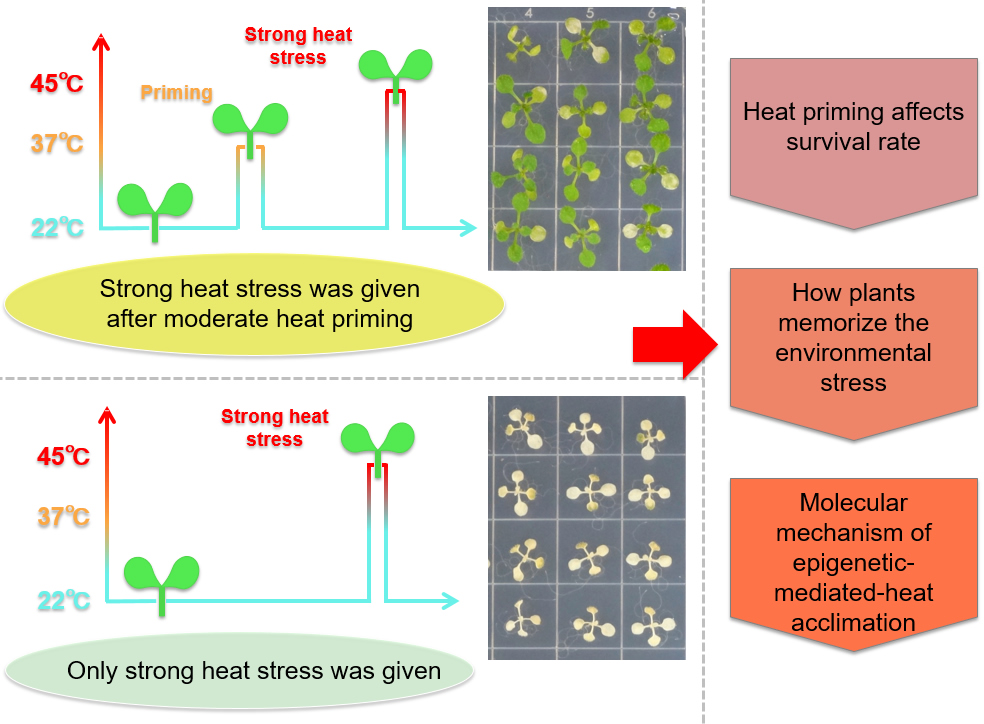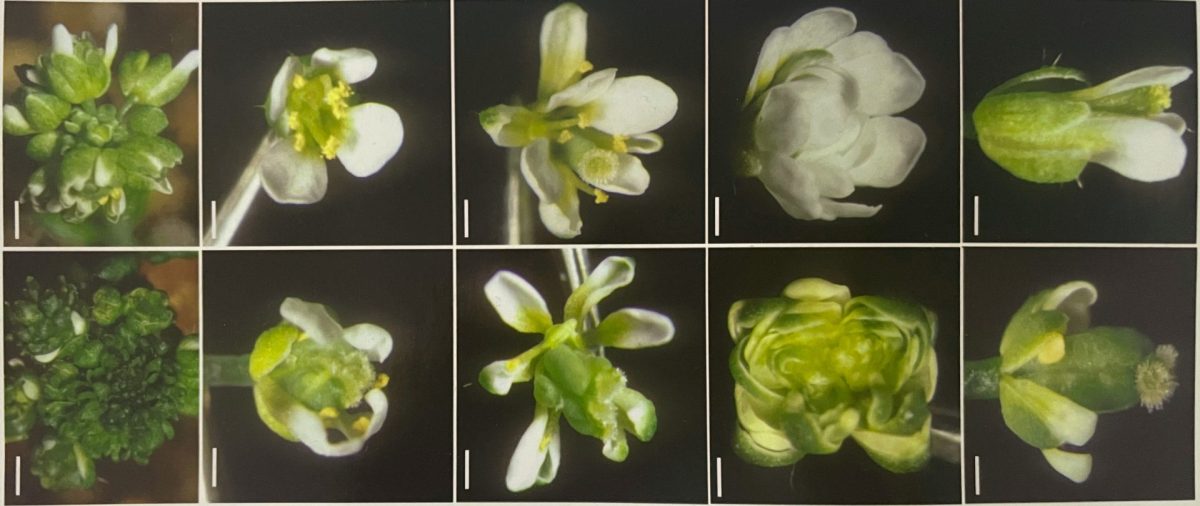Plant environmental response and acclimation
In order to survive, both animals and plants need to detect and react to changes in their environmental conditions. The mechanisms that monitor and respond to temperature signals play an important role in this process. Focusing on the phenomenon called plant heat acclimation, we seek to understand the molecular mechanisms by which plants adapt to severe temperature conditions.
Heat acclimation refers to the process in which plants acquire increased thermal tolerance following exposure to intermediate levels of heat stress. Unlike animals, plants do not have central nervous systems. Consequently, it remains unclear how plants “memorize” previous heat stresses and retrieve the memory to adapt to severe conditions. Based on the hypothesis that epigenetic regulation is involved in plant heat acclimation, we are conducting research on the factors that regulate histone modifications. We aim to explain how plants remember heat stress events, as well as how long they can retain these memories.


